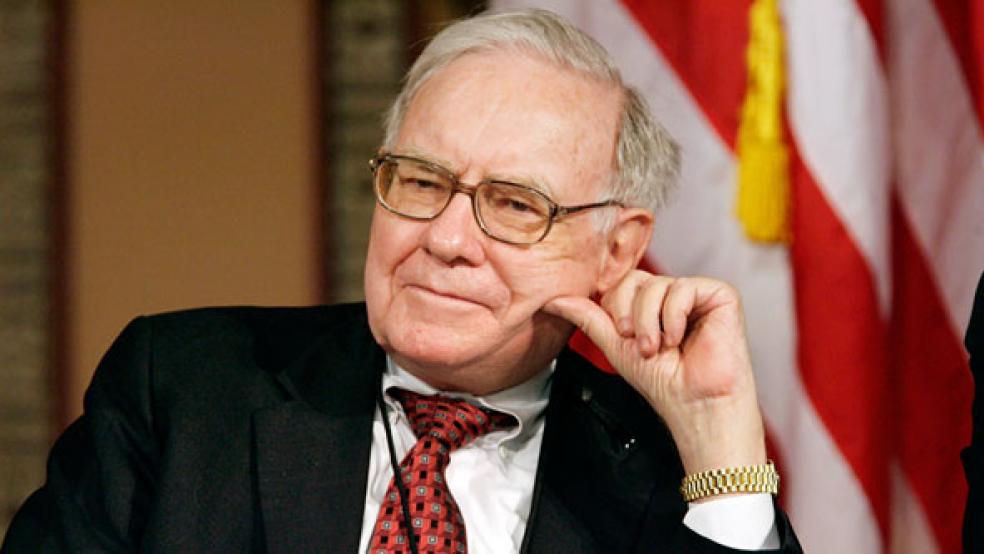The Economist Club of Washington, D.C. could have headlined its Silver anniversary event, “Just A Couple of Billionaires Sitting Around Talkin’.”
But what one of the world’s richest men had to say during the conversation Tuesday night couldn’t have appealed to most of the assembled crowd of billionaires, millionaires and well-to-do wannabes. Berkshire Hathaway’s Warren Buffett, the investment wizard from Omaha who grew up in the nation’s capital, told Carlyle Group co-founder and club president David Rubenstein that the U.S. needs a lot more revenue if it intends to bring its budget deficit down to sustainable levels.
“That means getting more from taxes (as well as) cutting expenditures,” he said. How much more? “If we’re raising $2.4 trillion (a year) now, we need $300 billion to $400 billion more than that.”
In other words, the federal tax take, currently around 15 percent of gross domestic product, needs to rise to 18.5 to 19.5 percent of GDP, which is in line with the historic pattern of most of the past 50 years. Expenditures, Buffett said, should be stabilized at around 20.5 to 21.5 percent of GDP. “You can have a 2 percent deficit and the debt-to-GDP ratio won’t grow.”
RELATED: Buffett: I’ll Go $1 for $1 with GOP to Pay Down Debt
Buffett made headlines last year by lamenting the fact that his secretary paid a higher effective tax rate than he did. President Obama seized on those comments to repeatedly ask Congress to raise taxes on those earning over $250,000 a year (now $1 million a year).
The president dubbed it “the Buffett rule.” “I couldn’t get a disease named after me, so I settled for a tax,” Buffett quipped. Congress has repeatedly rejected the idea.
Buffett’s latest foray into tax policy suggests he now thinks it isn’t just the rich who will have to pay higher taxes if the U.S. is going to close its yawning budget deficit, slated to exceed $1 trillion for the fourth consecutive year. One could double tax rates on millionaires and it still wouldn’t raise an additional $300 billion a year.
The voluble and always smiling Buffett entertained the crowd with the same pearls of wisdom that attract thousands of individual investors to his company’s annual meeting – who have been rewarded handsomely over the years. The billionaire’s original mentor was Ben Graham, the Depression-era value investor who taught Buffett at Columbia Business School to constantly search for companies whose market price was well below their long-term earning prospects.
“I’ve always looked at buying stocks as buying businesses,” he said. “I’m looking for one good idea a year.”
Asked what advice he had for average investors, Buffett cautioned against buying individual stocks, since most people don’t have the time or skills to analyze companies and too often fall into the trap of trying to time markets. He says he spends most of his days analyzing business income, cash flow and balance sheets.
Think long-term, the billionaire advised. “Save something every month and put it in an index fund. The average person should be consistently buying equities. After 20 or 30 years, they’ll do very well,” he said.
In the short run, he does not expect the economy to slip back into recession, although he voiced concern about events in Europe. He also dismissed talk about the U.S. entering a period of extended decline. “We still have the secret sauce,” he said.





